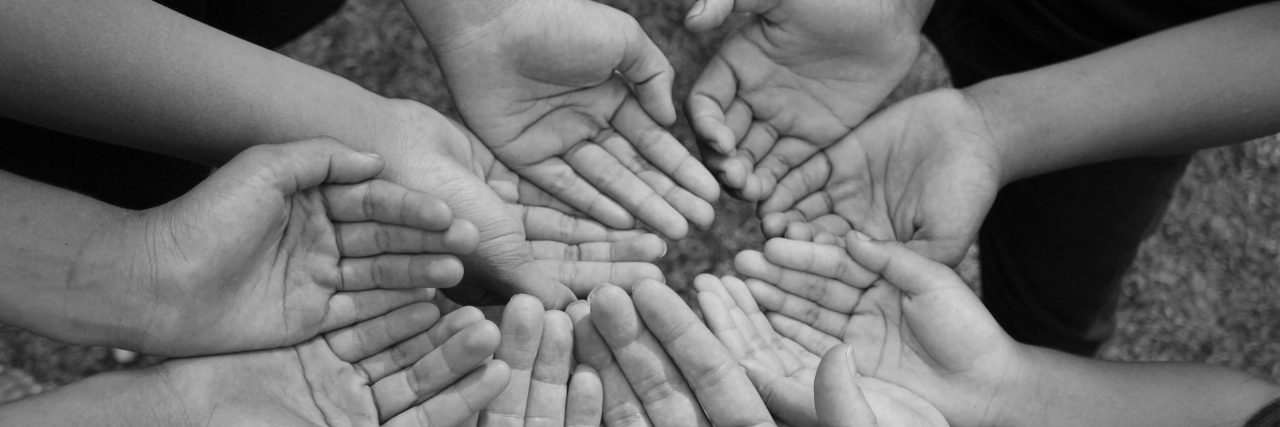This International Day of the World's Indigenous Peoples, We Need to Protect and Care for Our Mental Health
Editor's Note
If you’re looking for creative inspiration, check out the Daily Inspirations group on The Mighty.
While growing up on the Oglala Lakota reservation, one of the poorest places in America, my family would teach us about our ancestors, which included my great-great-grandfather, a Warrior named Chief Crazy Horse. He is well-known for his bravery, among other things, and fighting and winning the Battle of the Little BigHorn in 1876. He lived a life encompassing values that my people to this day still teach the younger generations. These values helped our ancestors hundreds of years ago, and I believe they are what continues to teach us to survive in this world.
While being Indigenous in the States means we are tied to rich and vibrant cultures, we also face the highest rates of suicide, substance abuse, and poverty. Indigenous lives are often forgotten and overlooked, especially since we have become such a small population of people over time. Our voices are rarely heard in our society. Nonetheless, we are still here, almost 150 years after the Battle of the Little BigHorn. I attribute this to the resilience of our Indigenous values and culture.
It may be easy to forget how far we have come as a people since our ancestors fought for us to continue to be here. The truth is, our Indigenous ancestors left us great legacies, and because of it we are able to share in the blessings of their fight. For me personally, I attribute much of this success to my parents, despite the hardships we endured. Not only did my parents do the best they could, they taught us the values of my culture and people. I don’t always practice these to perfection, but I do my best to ensure I am living as closely as I can to them while teaching my children the same thing.
So, how can we deal with extremely high rates of poverty, suicide, and substance abuse in our communities? I believe the most important work an Indigenous person can do is self-care and accessing therapy. It’s necessary to recognize that we as a community deal with intergenerational trauma – so we have even more work to do. Let’s not forget the importance of taking care of our mental health. For me, finding a therapist who has an understanding of my culture has really allowed me to connect and feel comfortable sharing my journey. The future generations are watching, so it is up to us to seek the help we need and fuel change.
I want my Warrior sons to remember the legacy of their ancestors, so I teach them these Lakota Values to help them care for their mental and physical health:
- Praying. Praying helps us remember we are not alone and there is a higher power. If this is not a shared belief for someone, I’ve found journaling to help a great deal. The goal is to write out your thoughts and get clarity.
- Respect. Valuing another person and their differences, and allowing them to grow and experience life as they see fit, is at the heart of what our ancestors taught us.
- Caring and Compassion. When we show others we care by empathizing, we can allow ourselves to develop healthy relationships. It helps us understand the needs of others and improve our mental health by staying connected at a deeper level.
- Honesty and Truth. All relationships need to have honesty and truth at their core to allow us to feel safe and begin to trust others again.
- Generosity. For my family, being generous with our time and resources helps us to get out of ourselves and appreciate the need for human connection.
- Humility. I believe we can still be humble and have our needs met. Humility is not forgetting where you come from or what you been through.
- Wisdom. We should be able to take the advice of those who are wise and understanding of life’s journey. Wisdom means making the best decision for you and those around you, in hopes of a positive outcome.
Each of these values has meaning, in that if we can live similar to these teachings, we will be doing positive things for our society and those around us. Our ancestors withstood years and years of abuse, and yet today they teach us that our existence and these core values will strengthen future generations. We are the ones responsible for instilling them into the lives of our children and those around us.
I am proud to be Indigenous. I am proud to be a descendant of one of the greatest Warriors in my tribe.
It amazes me that I get to show my sons how to leave a legacy and how to look to those who are making a positive mark in the world.
Remembering our ancestors and all they did is a way we can honor them today as we remember the Indigenous community across the world.

